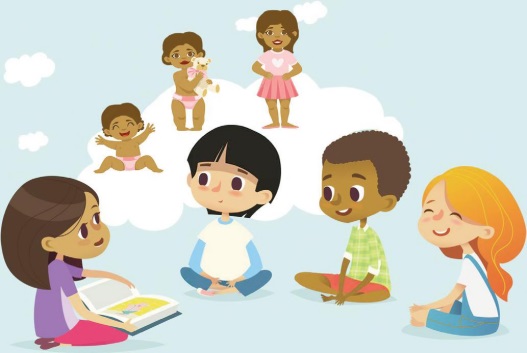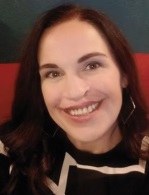TEACH YOUR CHILDREN HOW TO OWN THEIR STORY
BY VICKIE STOLLE
When you become a parent there is so much to take in and try to figure out no matter how prepared you felt before your little one arrived.
When you become a parent to a child that has additional challenges, such as my parents did when I was born in 1977 with a bilateral cleft lip and palate that they were not aware of beforehand, the number of issues they felt unprepared for doubled overnight.
I know that my parents felt overwhelmed and isolated at times because so much of my early years was taken up with countless appointments, numerous medical procedures and surgeries, long recovery times, feeding struggles - the list was endless. As the years went on and I got closer to beginning school, they were tasked with the added concern of how I would be accepted and if I would be able to be understood due to issues with my speech. Thinking of how best to prepare me for interacting with the outside world was heavy on their minds.
Thankfully, my cleft team included a speech therapist. I'm not sure if the term "early intervention" was used back then as it is now, but early intervention was exactly what it was. Having access to that service was a vital part of my treatment to improve my communication before I began school and carried on for a few more years as I went through my early elementary grades. Although it added yet another appointment to my parents' to-do list, they knew that making the time for this therapy and doing the work before I got into school would pay off greatly as I learned how to work with my cleft to speak as clearly as possible.
These days there are so many types of early intervention services out there and available for all children – from speech therapy like I had, to occupational therapy, social and emotional therapy, the list goes on and on. However, one aspect of the early development of a child with additional challenges many parents aren't aware of is the way in which they talk about their child's difference.
As a parent myself, I can attest to the fact that those little ears are always listening. Especially when I said an unfortunate word out loud and my daughter repeated it back to me with similar gusto. As parents we try to watch what we say around our kids, but have you ever paid much mind to how you talk about your child's difference with them and with others when they are around? Do you find that you tend to avoid talking about it with your child? Do you react defensively when asked something by a stranger? Do you tend to overshare and give all kinds of details to someone when approached? Your child is always listening, and they will take their cues from you. If you get nervous and anxious when going into social situations with your child because you are nervous about how you and your child may be received, that nervousness and anxiousness can be felt by your child. On the other hand, do you hold your head up high and make eye contact with others and be
open but respectful of your child's feelings when people make comments or ask questions? Your child will see that too.
My parents didn't shy away from talking about my cleft with others and would do their best to answer questions when asked about my facial difference. While I generally look upon that as a positive, one aspect of their openness that trickled down to me was the feeling that I had to be that open too. I always felt that no matter what I had to answer the questions from people whenever I was asked, even when I was uncomfortable doing so. It wasn't until around middle school that I learned I did in fact have the power to say "no". "No, I do not want to talk about this right now." "No, I do not want to talk about this with you." I believe that my parents wanted to show by example to not be afraid of talking openly about my cleft, but I do not recall a time where they said that it was also ok not to share if I didn't want to.

OPEN BOOK: Some kids are very open and comfortable talking a lot about their difference, but others may not be, and that is okay.
Learning to own my story and be comfortable sharing, or choosing not to, is a tool that I wished I learned at an earlier age than I did. As your child begins venturing out into the world, going to playgroups, and their first days of school, have conversations with them about how they want to talk about their difference. Some kids are very open and comfortable talking a lot about their difference, but others may not be, and that is okay. Help them come up with things they are comfortable saying when the questions and comments happen. Giving your child that little bit of empowerment will go a long way in helping them to realize they can share as much or as little as they want, and that you will support them no matter which option they choose. •
ABOUT THE AUTHOR:

Vickie Stolle is a wife, mother, music lover, writer, and founder of the company Dragonfly Paradigm. She is also a woman born with a bilateral cleft lip and palate. Vickie knows from firsthand experience the emotional challenges one goes through when living with a facial difference. As a result, she has developed tools and strategies to support emotional resilience that she shares with the facial difference community through Dragonfly Paradigm. In addition to launching a digital course for parents of cleft affected children in the spring of 2022, Vickie currently sits on Smile Train's Cleft Community Advisory Counsel.